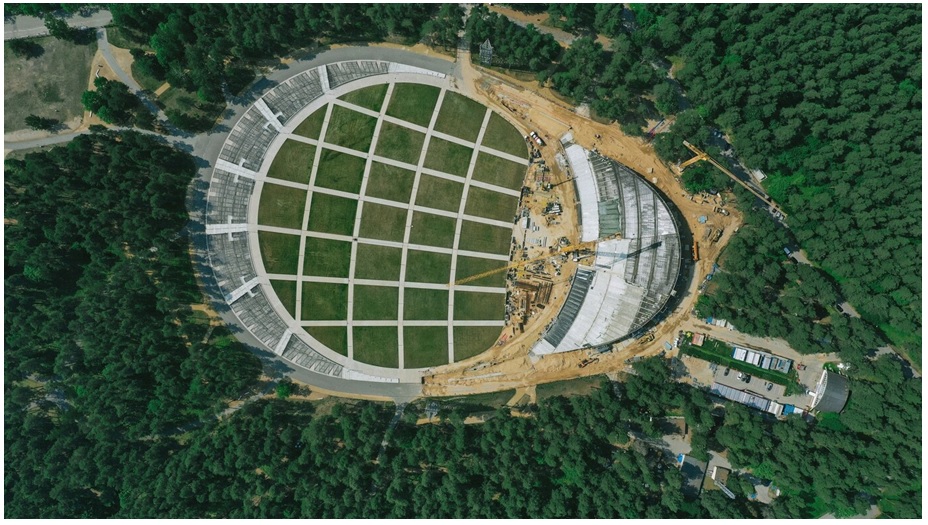Framing the Importance of Choosing a Quality Geosynthetic Supplier
In the realm of construction and infrastructure, the quality of resources used often directly impacts project outcomes. One of the most crucial components in modern construction is geosynthetics. Choosing the right supplier is more than just ticking a box; it’s a decision that could greatly influence the quality, longevity, and sustainability of your project. But with a plethora of suppliers in the market, how do you make an informed choice?
Let’s set the groundwork by understanding the role, significance, environmental implications, and contribution to our everyday life played by geosynthetics in construction and infrastructure projects. Later in this post, we will delve into the key factors to consider when selecting a geosynthetic supplier, balancing budget and quality, and even some tricks of the trade for negotiating better terms with your supplier.
Understanding Geosynthetics: The Building Blocks of Modern Infrastructure
Geosynthetics are synthetic materials used in geotechnical engineering, environmental engineering, and construction applications. They include a range of products like geotextiles, geogrids, geomembranes, and geocells, all of which play unique roles in enhancing the durability, stability, and effectiveness of infrastructure projects.
From landfill liners and coastal defenses, roadway reinforcements to containment of hazardous materials, the applications of geosynthetics are vast and varied. They simplify construction, save on natural resources, reduce carbon emissions, and offer better control over the project’s performance. In essence, geosynthetics are the unseen superheroes of infrastructure development.
The Consequence of Choice: Your Geosynthetic Supplier’s Influence on Project Outcome
The choice of your geosynthetic supplier can bear significant influence on the outcome of your infrastructure project. A reputable and competent supplier won’t just sell you geosynthetic materials but will guide you through product selection and application, ensure on-time delivery, and offer ongoing support for any queries or concerns you may have.
It’s not just about the physical products but also about expertise, guidance, and partnership. A supplier with a keen understanding of the industry’s dynamics, requirements, best practices, and global standards can substantially elevate the quality, durability, and environmental friendliness of your project.
Unravelling the Aspects: Key Factors to Consider When Selecting Your Geosynthetic Supplier
Choosing the right supplier goes beyond just analyzing the quality and cost of geosynthetic products they offer. It’s a thoughtful process that requires consideration of several key aspects:
Product Diversity- Does the supplier offer a wide range of geosynthetic products to cater to distinct project requirements?
Compliance and Certification- Does the supplier adhere to necessary industry standards and hold certifications to ensure top-notch product quality?
Technical Expertise- Does the supplier possess the technical acumen to accurately understand your project requirements and offer expert guidance?
Supply Chain Logistics – Is the supplier’s supply chain robust enough to ensure timely and seamless delivery of products?
After-sales Service- Does the supplier offer efficient after-sales support to address your queries and concerns post-purchase?
Compatibility First: Aligning Your Project Needs with the Supplier’s Product Portfolio
A key factor in selecting a particular supplier should be the diversity of their product portfolio. Different projects have distinct needs, and your chosen geosynthetic materials would vary based on factors such as soil characteristics, climatic conditions, load requirements, and intended application.
For example, if you are undertaking a coastal defense project, you’d need high tensile strength geosynthetic materials like geogrids or geocells. On the other hand, for landfill lining or hazardous material containment, you would be looking at impermeable geomembranes. Having a supplier who can cater to all of these diverse needs under one roof makes the procurement process smoother and allows for better technical support.
Manufacturing Excellence: Compliance, Certifications, and Quality
The quality of geosynthetic materials used can either make or break your project. Therefore, it is essential to choose a supplier who complies with Australian (or appropriate national) standards, has the necessary certifications, and consistently maintains high-quality manufacturing practices.

Some essential certifications to look for include ISO 9001 (Quality Management Systems), ISO 14001 (Environmental Management Systems), and IOS 45001 (Occupational Health and Safety). These certifications validate that the supplier has robust systems in place to ensure quality, environmental responsibility, and the safety of their processes.
Expertise & Experience: The Arsenal of Technical Knowledge
Technical know-how and experience in the field of geosynthetics can be invaluable assets that a competent supplier can bring to your project. A supplier with in-depth knowledge can provide accurate guidance on product selection, installation techniques, potential challenges, and sustainable practices. They can be instrumental in avoiding costly mistakes and delays, enhancing project performance, and ensuring compliance with all necessary regulations.
A seasoned supplier would also be able to offer insights based on previous similar projects, potentially guiding you towards more efficient, cost-effective, and sustainable solutions you might not have considered otherwise.
Beyond Production: Supply Chain Logistics and After-sales Support
Effective supply chain management can greatly influence the timelines, efficiency, and overall success of your project. A supplier with a robust supply chain can ensure timely delivery of products, which in turn can keep your project schedule on track. Disruptions in supply can cause delays, inflate costs, and even jeopardize project completion.
After-sales support is another factor of equal importance. Post-implementation concerns or queries are bound to arise. In such cases, prompt and efficient after-sales service can be the deciding factor between a crisis and a minor hiccup in your project.
Consistency over Cost: Balancing Budget and Quality
When navigating the costs associated with geosynthetic materials, the temptation to opt for cheaper alternatives can be tempting. But it’s crucial to remember that poor quality materials can not only jeopardize the project’s outcome but can also lead to costly corrections, rework, and potential environmental damage.
Investing in high-quality geosynthetics not only ensures the longevity and performance of your project but also aids in avoiding hidden costs associated with replacements, repairs, and maintenance. Therefore, while costs are an essential factor, it shouldn’t be at the expense of quality and sustainability.
Validation Via Testimonials: The Power of Past Clients
One of the most genuine sources of information about a supplier’s capabilities, reliability, and service quality are the testimonials and case studies of their past clients and projects. Reviewing these can give you an unfiltered insight into what to anticipate from your supplier.
For example, testimonial insights from a supplier’s previous project may reveal how they navigated a challenging problem faced in geosynthetic installation – something that could be a common issue in many projects. The manner in which the supplier handled problems, ensured quality, and satisfied their clients can be a strong indicator of their capability and trustworthiness.
The Art of Supplier Negotiation: Ensuring the Best Deal
While selecting a geosynthetic supplierisn’t only about finding the cheapest option, it’s also not about blindly accepting the first price proposed. It’s an agreement – and like any agreement, there’s always some space for negotiation.
Initiate the conversation about prices by doing benchmarking – find out standard rates in the industry, and use that as a basis for your negotiation. Package deals or long-term supply contracts might also give room for better prices. Furthermore, don’t shy away from discussing the timeline and payment terms. Negotiating isn’t only about costs – favorable payment and delivery terms can also yield significant benefits.
Conclusion
Selecting the right geosynthetic supplier is a consequential decision. The guidance provided in this post underscores the need for comprehensive evaluation that encompasses product diversity, compliance, technical expertise, reliable supply chain logistics, and robust after-sales service. The quality of geosynthetics should never be compromised for cost-effectiveness. Moreover, the power of negotiation can ensure you get the best value from your selected supplier.
